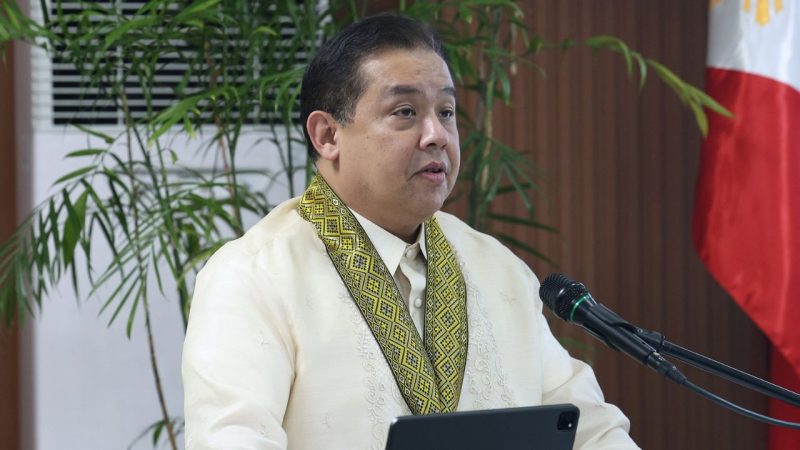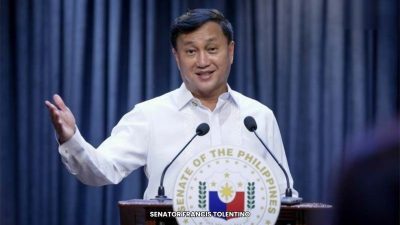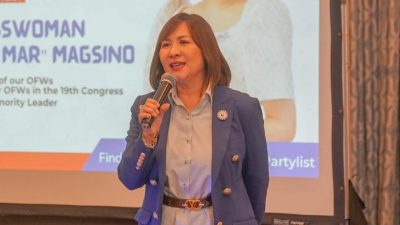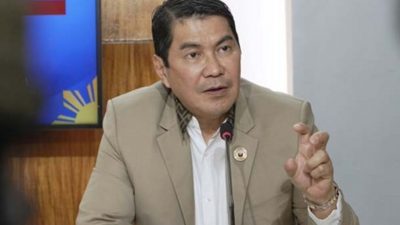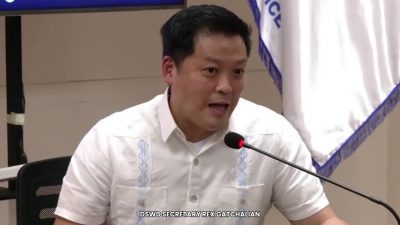By Junex Doronio
MANILA — Speaker Ferdinand Martin G. Romualdez on Friday (08 Nov 2024) expressed strong support for President Ferdinand “Bongbong” R. Marcos Jr.’s executive order mandating an immediate ban on Philippine Offshore Gaming Operators (POGOs) and all other offshore gaming activities.
The Speaker praised the President’s decisive action, saying it aligns with the ongoing efforts of the House of Representatives to tackle the “evils” associated with POGOs.
“The House of Representatives stands with President Marcos in his push to end the evils and illegal activities tied to offshore gaming, which have put our public safety, national security, and economy at risk,” Romualdez said.
“This ban is a big step in protecting our communities and bringing order back,” added the leader of the 300-plus-strong House.
Executive Order (EO) No. 74, signed on November 5, 2024, follows findings by the Department of Finance and the Anti-Money Laundering Council linking POGOs to rising crime, social problems, and economic harm.
Romualdez said the findings show how important it is to fully address the dangers that illegal offshore gaming can bring to the country.
The House has been proactive on this issue, with the Quad Comm—a joint panel involving the Committees on Dangerous Drugs, Public Order and Safety, Human Rights, and Public Accounts—leading a comprehensive probe into the widespread criminal activities associated with POGOs, which flourished during the time of former President Rodrigo Roa Duterte.
This investigation has revealed extensive connections between POGOs and various criminal syndicates, including those involved in money laundering, drug trafficking, and unlawful land acquisitions by foreign nationals.
“Our work through the Quad Comm has shown that POGOs present serious and far-reaching risks to our nation,” Romualdez pointed out.
He added: “The House is not only supporting the executive order but also advancing legislative solutions to strengthen enforcement efforts and protect our communities. Our commitment to upholding the rule of law and ensuring national security is unwavering.”
Two legislative measures have been filed as a result of the Quad Comm’s probe on POGOs: House Bill (HB) 10987, which aims to formalize a POGO ban due to its links to crime and national security risks, and HB 11043, which empowers the government to seize real estate unlawfully acquired by foreign nationals, particularly those connected to illegal POGOs.
HB 10987, the proposed “Anti-Offshore Gaming Operations Act,” aims to prohibit all forms of offshore gaming in the country and impose strict penalties on violators.
Offenders could face prison sentences of four to 10 years, along with fines of up to P10 million for repeat offenses.
Foreign employees of POGOs would face immediate deportation, while government officials found aiding illegal POGO operations would be dismissed and stripped of benefits.
If passed into law, the legislation would mandate the closure of all POGO activities by December 31, 2024, ensuring that involved entities settle any unpaid taxes before ending operations.
Meanwhile, HB 11043, or the proposed “Civil Forfeiture Act,” aims to strictly enforce the constitutional ban on foreign land ownership in the Philippines.
The bill targets individuals who bypass these restrictions using falsified documents, enabling civil forfeiture of land acquired illegally.
The Office of the Solicitor General (OSG), with support from the Department of Justice, would oversee forfeiture proceedings.
Under the bill, forfeited land would be repurposed for public benefit—agricultural land would be distributed to farmers, while non-agricultural land would be used for public services, such as schools and hospitals.
On October 21, the Quad Comm submitted key documents to the OSG, urging it to pursue legal actions against Chinese nationals accused of using fake Filipino citizenship to acquire land and establish businesses in the Philippines.
The mega-panel called on the OSG to expedite its review and begin civil forfeiture proceedings.
ia/mnm

